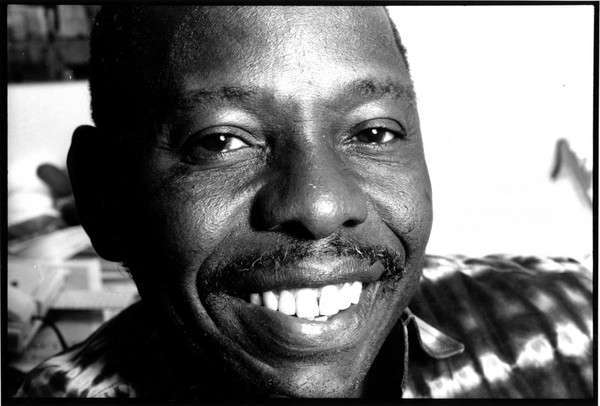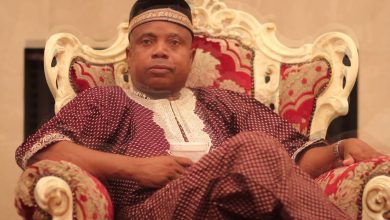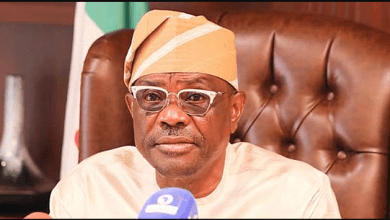
Dis Nigeria Sef is the longest poem in Ken Saro-Wiwa’s Songs in a Time of War. This poem does not belong among the war poems; the writer acknowledges in one of his memoirs that it was written in 1977, long after the cessation of hostilities. Frank and dispassionate, the poem is important because it reveals a clear assessment of the Nigerian condition. It is the passionate outburst of a patriot who at once decries the stagnation of a cherished land and inscribes positive aspects of the Nigerian identity. This speaker believes that Nigeria is a place where nothing works—and still will not give a thought to denouncing the country.
A deceptively simple poem, Dis Nigeria Sef runs to 276 lines. The first 178 lines graphically depict the apparent failure of Nigeria due not just to the visionlessness of its leaders, but to the collective lack of will to transform the country. The speaker blames the state of the country on the attitudes and dispositions of its people.
In the remainder of the poem, the speaker admits that there are things worthy of celebration: the uniqueness of the Nigerian state and its potentials for greatness. The poem reveals the vision of transformation that the persona nurses for his land while admitting that many aspects of the Nigerian experience are disgusting and unacceptable. In sum, the poem urgently advocates adopting the desirable aspects of modernity and calls for a national reorientation to transform Nigeria.
Dis Nigeria Sef succeeds as poetic utterance largely because its subject influences its techniques. The fact that the poet uses Pidgin English as opposed to standard English is important. Pidgin English has become a popular medium in Nigerian life and is an effective tool for the comic and satirical. The poem effectively uses pidgin expressions that many Nigerians are familiar with to evoke a familiar reality.
This rhetorical stratagem thus maximizes the poem’s potential for mass appeal. The division of the poem in two parts also creates a sense of balance in the way Nigeria is represented. This sense of balance comes from the way the patriotic zeal of the persona emerges from an objective portrait of Nigeria. The fact that no fewer than 30 of the 31 rhetorical questions that occur in the poem are found in the first part intensifies the crucial sense of indignation that is predominant in it.



